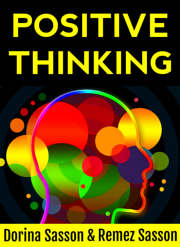
Healthy aging is vital if you want freedom, less pain, and more enjoyment of life. But what is healthy aging? How can you promote it? Read on to find out!
What Is Health?
Before discussing “what healthy aging is,” we need to have a working understanding of health. The World Health Organization defines health as:
Complete Physical Health
Physical health has several categories, including:
- Physical fitness and level of and ability to do physical activity.
- Diet & Nutrition (including things like taking a multivitamin).
- Behavior aspects.
Complete Mental & Social Health
Browse our online courses on meditation, positive thinking, overcoming procrastination, confidence, and freedom from distractions.
Mental and Social Health may be divided thus:
- Emotional: the ability to experience appropriate emotions.
- Psychological: the state of feeling good and being able to function well.
- Social well-being: the ability to interact with others, have friends, form connections, and have social support for what you’re going through.
Mental and social health has a bearing on your thought processes, plays a part in feeling well, and helps to determine your actions.
It helps to determine how you handle everyday stress, relate to others, and make choices. If your mental and social health is terrible, it can affect the rest of your life.
What Is Aging?
A good working definition of aging is “the process of becoming older, representing the dynamic accumulation of changes over time. It can encompass physical, behavioral, environmental, psychological, and social changes.”
What Is Healthy Aging?
Healthy aging is the ability to remain free and independent, do as you want, not to be in a nursing home, assisted living facility, or need extensive in-home care.
As you age, you’ll want to enjoy the freedom to be able to:
- Go to places you couldn’t see when you were younger and get around.
- Be able to drive yourself to the store and your social groups versus having to be driven around by others.
- Have an active life instead of being confined to a wheelchair or in bed due to infirmity or pain.
- Be aware of your surroundings, rather than being confused.
- Do things like being able to cook and clean for yourself in contrast to having to rely on others to do these things for you.
How Can You Promote Healthy Aging?
There are several things that you can do to promote healthy aging. Each idea by itself is simple. Combined, they are potent tools to remain independent.
1. Avoid social isolation
The more involved you are with social groups, the better.
Find a hobby that you can do with others and do it. Some examples might be joining the choir, a chess club, tabletop RPG, or card group. Also becoming more involved in your religious institution, or a senior sports club.
If you have family or friends, reach out to them regularly. They’ll be happy to know you’re alive, and you can check in with any questions or concerns you might have.
Increased social isolation and loneliness are linked to depression, heart disease, and cognitive decline, which impairs thinking, learning, and memory.
2. Eat healthily
As you age, it may be more tempting to go out to eat more and get prepackaged foods. Doing so is a trap, as such foods are filled with sodium, unhealthy oils, preservatives, processed carbs, and sugars.
By cooking for yourself from scratch, you can choose colorful, healthier, less processed foods, and, most of all, you know exactly what’s in the dishes you make.
3. Exercise
Exercise is simply moving around and can be accomplished through a variety of everyday tasks.
Gardening or lawn care, shoveling snow in the winter, going to the gym and lifting weights.
Other activities are walking around the neighborhood or local malls, participating in a tai chi course, and doing household chores are all examples of the types of exercise you can do as you age.
4. ‘Know your own body’
This is excellent advice as you get older, but sometimes easier said than done.
The biggest part of knowing your body is being in tune with it. When you’re hungry, eat; if you have no appetite, don’t. Keep hydrated. Sometimes what your body interprets as hunger is thirst.
Know your body’s limits. As you age, you may not be as strong or fast as you once were. Knowing when to slow down or stop doing an activity is almost as important as keeping physically active.
Get routine checkups by the doctor, and even if you’re not scheduled for a visit, contact them if anything changes.
Take the medicine your doctor gives you, but be aware of any potential side effects they may have and inform the doctor if you’re experiencing them.
5. ‘Keep Mentally Sharp’
This is valuable advice at any age, but especially important as you get older.
The goal is always to learn new things and practice things you know, so you don’t suffer needless decline.
Play word games like crosswords and word search, do puzzles like sudoku or quiz games, sing, dance, play or learn an instrument, and take an online course. These activities will help you retain mental focus and clarity as you age.

